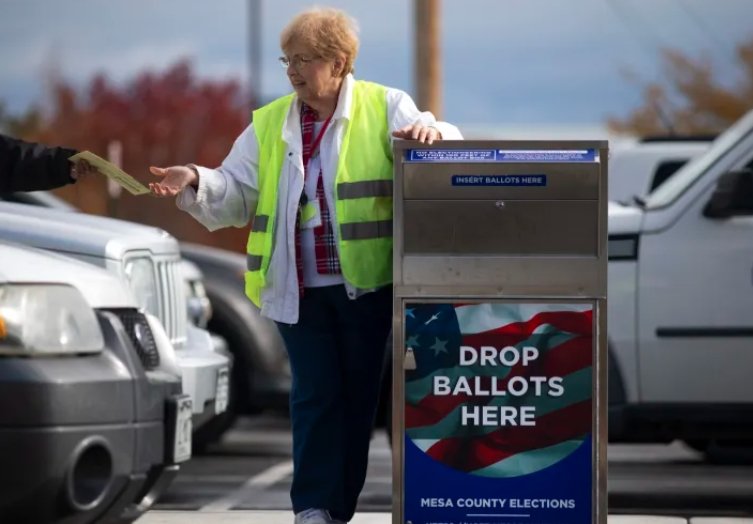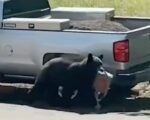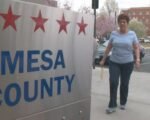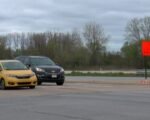A big day for Grand Junction — even if it doesn’t feel like one. As municipal elections roll in, residents are being asked to make decisions that could shape their neighborhoods for years.
But the turnout? Historically, it’s not great. Still, a few voices in the community are pushing back against the apathy and urging folks to think local, act local, and vote local.
“This Is Where It Counts”
Jason Jolley isn’t shouting, but he’s serious. Sitting outside a local café downtown, sipping something that looked stronger than coffee, he leaned into the conversation about what voting really means.
“Local elections have a tremendous amount of impact,” Jolley said. “Most people generally don’t want to consider in the usual run of things.”
He’s got a point.
From potholes to planning boards, it’s these smaller elections — the ones with fewer yard signs and almost no TV ads — that directly affect daily life. Jolley’s especially passionate about how city elections give space for independents and third-party candidates to show up, speak out, and sometimes even win.
“In Grand Junction, independent candidates can really make headway,” he added. “Try doing that at the national level.”
His frustration isn’t uncommon. A lot of people feel ignored by the big-ticket races, but they forget the power they have right in their own ZIP code.

The Research Problem
Alicia Knestis has a different concern — one that might sound familiar.
“I feel like it’s very important to do your research,” she said, “because not a lot of people research.”
She’s not wrong.
Ballots aren’t just about who you like. There are issues buried deep in that list — funding decisions, infrastructure proposals, zoning laws. It’s easy to get overwhelmed or skip the fine print. And skipping the fine print can be costly.
Her sister, Julie Knestis, chimed in with her own take. “I want to personally know and be able to understand what I’m voting for.”
Seems obvious. But in a low-turnout election, even a small group of well-informed voters can steer the results.
That’s why some locals are urging others to slow down, look up the candidates, and skim the sample ballot — which, yes, the city made available online.
Here’s What You Need To Know Before 7 PM
If you’re reading this on April 8, there’s still time. Here’s a quick breakdown to make things a little easier:
-
Ballots can be dropped at multiple drop boxes around Grand Junction
-
In-person voting is available at Mesa County Central Services, 200 S. Spruce Street
-
Polls and drop boxes close at 7 PM MST sharp
No grace period. No second chances. So if your ballot’s still on the passenger seat, now’s probably the time to move.
What’s Actually on the Ballot?
This isn’t just about electing a councilmember. There are measures, too — the kind that don’t grab attention until they start affecting your tax bill or your water rate.
Here’s a simplified table of what voters are deciding today:
| Ballot Item | Description |
|---|---|
| City Council District 1 | Elect one representative |
| City Council At-Large Seat | Open to all city voters |
| Public Infrastructure Proposal | Funding for road repair and sidewalk improvements |
| Housing Development Measure | Regulations on new housing developments |
| Tax Adjustment Initiative | Proposed change to sales tax allocation |
It’s a mixed bag — from concrete to policy. Voters need to consider both the personalities and the paperwork.
Why Turnout Still Lags — and Why It Might Not Matter
Municipal elections often feel invisible. There’s no hype. No massive campaign tours. No celebrity endorsements.
So people skip them.
But that invisibility comes with a strange twist: smaller turnout means your vote is actually louder.
A single vote in a local election can carry 20 to 50 times more weight than it would in a presidential race, according to analysis from the National Civic League. In a city the size of Grand Junction, margins can be razor-thin.
One sentence here: It’s not unusual for local races to be decided by fewer than 100 votes.
Which makes you wonder — why wouldn’t you vote?
Apathy or Disconnection?
Some residents say the issue isn’t laziness. It’s disconnection. The signage is minimal. The candidates often don’t get face time. There’s no buzz.
Local elections don’t “feel” urgent.
But that disconnect can be dangerous. It lets a small number of people — sometimes with very specific interests — decide outcomes for everyone else.
And when that happens? You get policies and leadership that don’t reflect the broader community.
So while some people complain about low turnout, others see an opportunity.
“This is the only time your voice actually carries,” Jolley said again. “Use it.”













